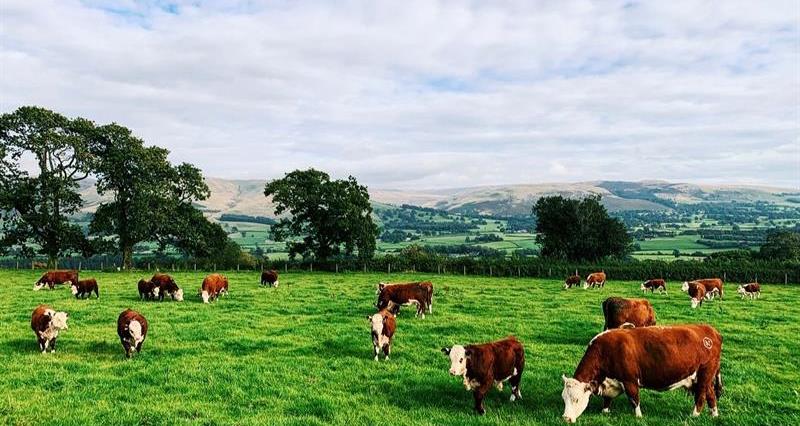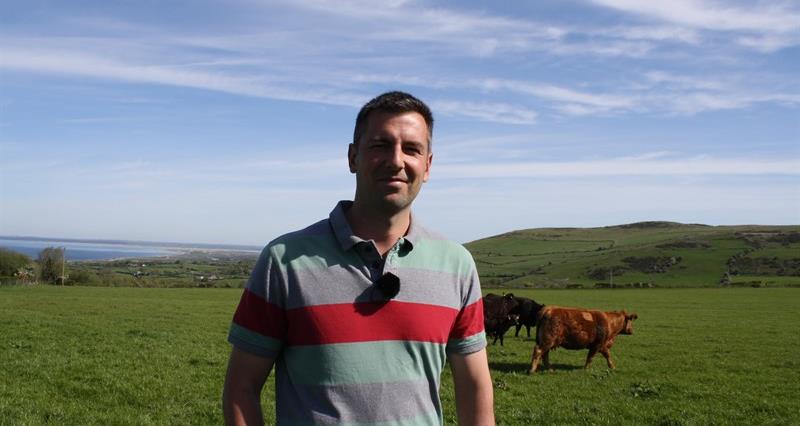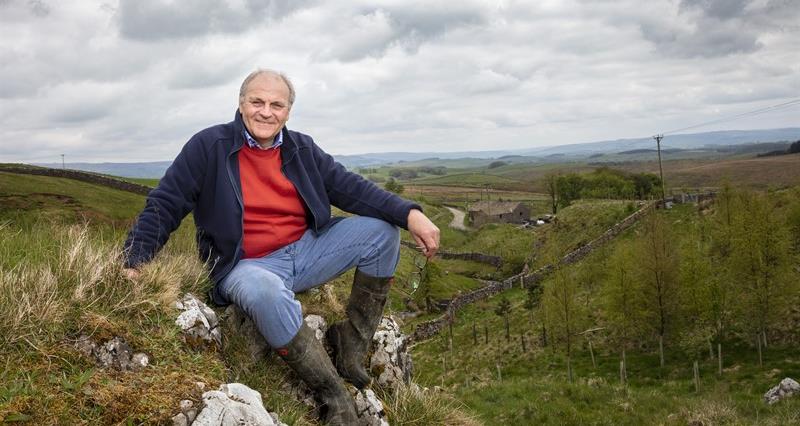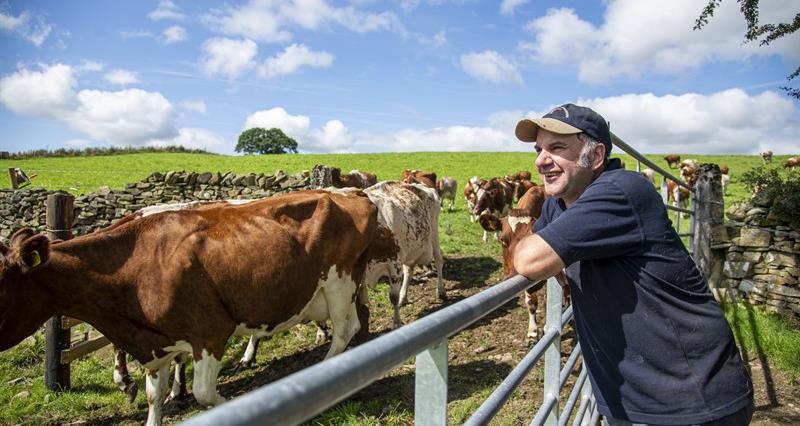British farming has a role in tackling climate change and the NFU (National Farmers Union) - which represents 55,000 British farmers - recently outlined its aspiration for net zero agriculture by 2040.
British farming with its extensive, grass-based, grazing systems produces some of the most sustainable beef in the world. According to the Government’s Committee on Climate Change, greenhouse gas emissions from UK beef are about half the global average1.
British farmers are very proud of their high standards of production and aim to farm in as climate friendly a way as possible with a view to achieving net zero greenhouse gas emissions.
There are three key ways that farmers can make a big difference:
- Farmers have a special role managing the land protecting carbon reserves in the soil and vegetation on their farms.
- To reduce emissions further farmers are working hard to increase their productive efficiency by producing the same quantities of food but with less inputs.
- Increasing the production of renewable energy on farm by growing crops that can be fed into anaerobic digesters or harnessing the sun, rain and wind through solar panels, hydro plants and turbines.
What are the environmental benefits to British livestock?
The UK climate is ideal for growing grass for animals to eat.
Around 65% of farmland in the UK is best-suited to growing grass rather than other crops2. If we did not graze livestock on it, we could not use it to produce food.
Grazing livestock on this land allows us to turn inedible grass into high quality, nutrient-rich beef and lamb. This land also provides a valuable habitat for many native wildlife species that need open grassland to forage, such as hedgehogs and lapwings.
87% of UK beef is produced using predominantly forage based diets3, with only a very small amount of soya in rearing diets. This means UK beef production is not a driver of deforestation in other parts of the world.
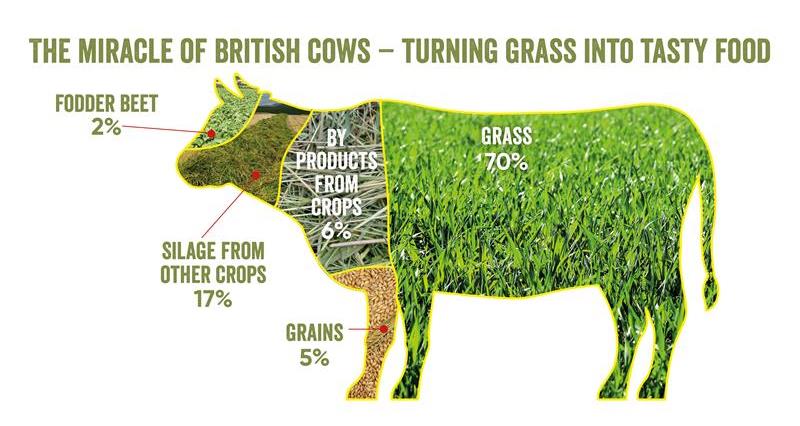
Sheep also produce wool, which is worth £100 million to the British economy4. Wool offers a range of solutions to problems we currently face. It is 100% natural, a renewable fibre source as sheep produce a new fleece every year, and is biodegradable.
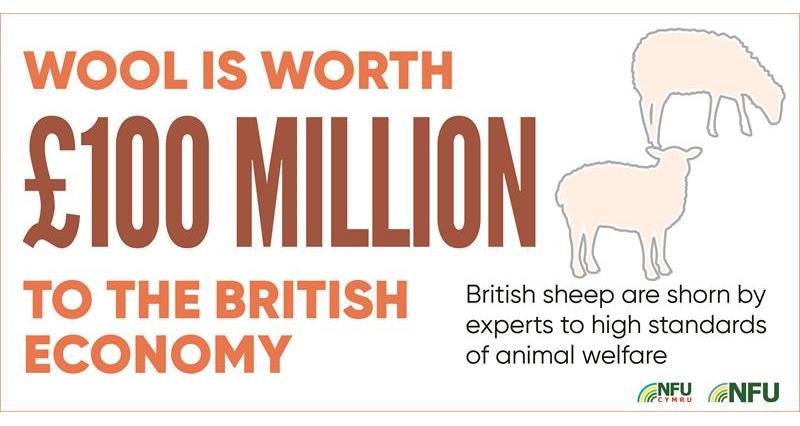
What are farmers doing to produce renewable energy?
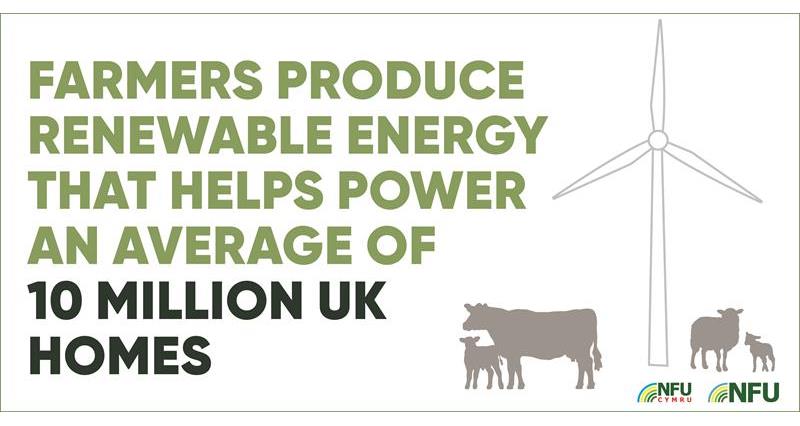
Farmland has been used for both food and energy production for hundreds of years. Today, nearly 40% of farmers and growers are using the sun, wind, farm by-products and energy crops to produce electricity and heat for use on farm.
Two of the most used renewable technologies on British farms are solar PV panels for electricity and heat generation from biomass.
Solar power

Farmers have a long history of using the sun’s energy to grow and dry crops. The development of solar power technology (often referred to as photovoltaics or solar PV) means light energy can also be captured to produce an electric current.
PV panels or modules can work for a long time (up to 40-50 years) and require very little maintenance. Solar PV is regarded by many experts as one of the most environmentally-friendly renewable energy technologies.
Many farmers have installed solar panels on their buildings and land. There are three main ways solar panels can be installed:
- PV panels mounted on top of existing roofs or integrated into new roofs and buildings
- Ground-mounted panels in unplanted areas – for example around the edges of fields
- Large arrays of panels across entire fields
Anaerobic digestion

Anaerobic digestion (AD) is the controlled breakdown of organic material in a closed ‘digester’ vessel. Anaerobic means ‘without air’, as opposed to composting, which takes place in the presence of air.
After 20 to 60 days, depending on the configuration and internal temperature of the digester, a methane-rich ‘biogas’ is produced. This gas is used for electricity and heat generation, and may also be upgraded for other applications.
Another product of the AD process is an odour-free ‘digestate’ which can be spread on farmland as a fertiliser.
Material suitable for the AD process includes:
- Animal manure and slurry
- Energy crops such as maize or ryegrass silage and fodder beet
- Food processing by-products
- Food waste from retailers
- Biodegradable household waste
Where did we get our information?
- Land use: Policies for a net zero UK, Committee on Climate Change, January 2020
- Farming Statistics: Provisional crop areas, yields and livestock populations at June 2019 – United Kingdom, Defra/National Statistics, 2019
- Cattle Farm Practices Survey 2019, Defra
- Wool and the carbon cycle, International Wool Textile Organisation website
How are farmers working to achieve net zero?
Hear first hand what British farmers around the country are doing on their farms to achieve net-zero by 2040.
Llyr Jones, Wales
Llyr is an upland farmer in Wales. He powers his farm without buying any electricity as he harnesses the rainfall in Wales.
While watching, look out for:
- What kind of energy do they use to power the farm?
- How has he used his farm produced electricity to expand his farm?
- How does he make sure his cattle eat fresh grass every day?
- Why is it important to look after the peatland on his farm?
Phil Pearson, Cheshire

Phil is a tomato grower, who tells us how he’s made their tomato production carbon negative, with the aim of achieving their net zero targets ahead of time while producing tomatoes from March through to Christmas.
While watching, look out for:
- How many tomatoes do they produce every year?
- What is the waste heat, carbon dioxide and exhaust gas emissions used for?
- What do they use instead of pesticides?
- How they produce eco-friendly packaging?
